
One of my goals in writing this publication has been to provide a voice to forgotten victims of medicine. For this reason, I to try to respond to comments and messages I receive (e.g., I really appreciate all the heartfelt messages paid subscribers leave when they sign up). However, as this publication has gotten larger and larger it’s become harder and harder for me to appropriately respond to everything I receive. Similarly, I used to respond to emails but no longer do as I would repeatedly get added to mailing lists and eventually had to abandon those email accounts because they received too many emails.
So, to address this issue, I am testing out monthly open threads for people to ask whatever they would like to and trying to combine those threads with something interesting and pertinent that doesn’t quite fit into an article. Given the day’s events, I thought I would focus on the Nobel Prize and share a comment I received from a reader about yesterday’s article (which discussed the widespread problem in medicine of incorrect medication doses being given to patients):
This topic strikes a nerve in me.I have practiced primary care/ER for >25 years until a premature retirement due to an eye injury. Prior to medical school I spent a brief session in a graduate pharmacology program, where I learned about the CYP 450 system [which governs how fast you detoxify drugs from your system].
I remember giving a talk about this system circa 2005 and lamenting the fact that routine testing for individual's CYP 450 profile was not routinely done, so drug doses could be individualized [and prevent overdoses]. I fully expected this test to be in widespread use by now but, to the best my knowledge, not much progress seems to have been made.
Googling the test show that they are available but I could not find out the cost. [I] am sure that more widespread routine use of the tests before prescribing any drug could reduce toxicities and death
The other issue I have also found in need of attention is that of the "one size fits all"for starting doses of a multitude of drugs with little regard to age. I used to use almost homeopathic doses in the very old.
The Nobel Prize
Within science and academia, most believe the “highest” achievement one can receive is the Nobel Prize—a distinction award each year to the individual(s) who pioneered the most important and ground-breaking discoveries in their respective fields.
The Nobel Prizes were created by Alfred Nobel, a chemist, engineer, and industrialist who amassed a fortune through his inventions—much of which came from dynamite.
In 1888, Nobel’s brother died, which led to a French Newspaper mistakenly published an obituary for Alfred Nobel instead which was titled "The Merchant of Death Is Dead." Not wanting to be remembered in this fashion, he decided to write a will donating his assets towards establishing an endowment that would fund five annual prizes in his name for those who confer the "greatest benefit on mankind" in physics, chemistry, physiology or medicine, literature, and peace. Eight years later, he died from a brain hemorrhage and a few years later (1901) the first Nobel prizes were awarded—and since that time have each been equivilant to approximately one million dollars in today’s currency.
Note: in 1968, Sweeden’s central bank made a donation that funded a sixth annual Nobel Prize in Economic sciences.
Choosing the Nobel Prize
Since hundreds of important discoveries are made each year, the question then becomes deciding exactly who is to receive them, and this challenging task is delegated to committees for each of the prize. For example, the Nobel Prize in Physiology or Medicine is awarded by a 50 professors at The Nobel Assembly at Karolinska Institutet.
Given the uncertainty and bias of science, it is almost a Nobel committee with enthusiastically endorse something that after the fact is viewed as a horrendous mistake. For example:
In 1949, the neurologist António Egas Moniz received the Physiology or Medicine Prize for his development of the prefrontal leucotomy. The previous year, Dr. Walter Freeman had developed a version of the procedure which was faster and easier to carry out. Due in part to the publicity surrounding the original procedure, Freeman's procedure was prescribed without due consideration or regard for modern medical ethics. Endorsed by such influential publications as The New England Journal of Medicine, leucotomy or "lobotomy" became so popular that about 5,000 lobotomies were performed in the United States in the three years immediately following Moniz's receipt of the Prize.
Note: lobotomies were frequently used to treat psychiatric disorders and were often disastrous for patients.
Similarly, significant controversy has surrounded other prizes. For instance, the Nobel Peace Prize was awarded to Henry Kissinger for his work to end the Vietnam War, even though Kissenger was one of the primary individuals responsible for the bloodshed that happened and the Committee knew Kissenger’s peace deal was a sham (which led to many of the recipients refusing to accept the prize).
Likewise, when Obama became president, he was immediately selected for a Nobel Peace Prize (despite having done nothing to earn it) and during his presidency was directly responsible for numerous catastrophic wars around the world we are still experiencing the consequences of. Additionally, he also helped oversee an immense program of targeting adversaries with drone strikes:
Every Tuesday, President Obama personally checks off the names of people he wants killed. George Bush, a bit more squeamish than Obama, never did that; but Mr Obama felt those decisions were the president’s responsibility: he "want[s] to keep his own finger on the trigger”, according to one report. A tidy, scheduled man, the President only picks his victims once a week, now called “Terror Tuesday”.
The 542 drone strikes that Obama authorized killed an estimated 3,797 people, including 324 civilians. As he reportedly told senior aides in 2011: “Turns out I’m really good at killing people. Didn’t know that was gonna be a strong suit of mine.”
Note: two articles on the horrific human costs of the drone program can be found here and here.
Conversely, since there are so many potential recipients, the Nobel Prizes are also often criticized for failing to award a prize to a specific party who the public believed deserved it—for example, Ghandi was nominated five times for the Nobel Peace Prize but never received it.
The 2023 Nobel Prize in Physiology or Medicine
Given the challenges they face and the inherent biases most of them hold (e.g., they tend to err towards the liberal side of the political spectrum and are jus as susceptible to being pulled into the current narrative as everyone else), I feel the Nobel Prize committees typically makes a fairly good decision on who they nominate to receive the prizes.
One of the main strategies they’ve employed to reduce the likelihood of making bad decisions history will look unfavorably upon is to give the Prize long after the research and discoveries have been made—since at that point it is much clearer what the effect of those discoveries was and if it’s a good or a bad idea to reward them.
Because of this, I was quite surprised at their decision to break with that precedent this year.
Despite the immense fanfare that initially surrounded the mRNA vaccines, in only a few short years much of the public along with a significant portion of the medical profession has come to believe that:
•The mRNA technology should not be routinely used in humans
•The COVID-19 vaccines cause significantly more harm than the benefit that arises from them.
These both suggest that it was very premature to award this prize and that it may in the future been seen in the same way the decision to award one for lobotomies was.
Thus far, this is one of the most popular commentaries on that decision:
Who Deserves that Nobel Prize?
There are two common criticisms of the Nobel Prize.
The first is that the recipients sometimes endorse controversial beliefs outside of their area of expertise. To quote Wikipedia:
Despite the symbolism of intellectual achievement, some recipients have embraced unsupported and pseudoscientific concepts, including various health benefits of vitamin C and other dietary supplements, homeopathy, HIV/AIDS denialism, and various claims about race and intelligence. This is sometimes referred to as Nobel disease.
Note: many of these criticisms were leveled against Linus Pauling and Luc Montagier , two brilliant scientists who after their prize, put forward many “controversial” ideas I believe were incredibly important for the practice of medicine.
The second was that Alfred Nobel, shortly before his passing stipulated that no more than three people can split each prize. Since research is more and more a collaborative effort, this often results in only certain members of a team that made a critical scientific discovery being awarded the prize.
Since two people were selected for this year’s prize, this raises the question of if a third should have been as well.
Backstabbing in Academia
While I am not a fan of Kissenger, he nonetheless has a few memorable quotes. One of them was:
Academic politics are so vicious precisely because the stakes are so small.
In turn, you will frequently observe academics go to great lengths to steal discoveries from others or maneuver to displace their rivals within a university’s power structure. This is why for example even though I love to think and explore ideas, I simply could not bring myself to pursue a career within academia.
Similarly, whenever a profitable invention is discovered, people will often go to great lengths to claim “ownership” over it and willingly backstab those who helped create it. Some of the most memorable recent examples occurred with the mRNA vaccines, which makes sense as they were the most profitable consumer product in history. For instance:
•Moderna sued Pfizer (and BioNTech—where Nobel Laureate Karikó was a senior vice president) for patent infringement over the vaccine.
•Moderna has been sued by multiple companies (e.g., this one and this one) for patent infringement over the vaccine.
•Moderna had a longstanding legal dispute with the US government over if it was obligated to pay any of its profits back to the US government. For context, federal discoveries were used to make Moderna’s vaccine, 10 billion dollars were spent by the US government to help develop and test the vaccine, and the US government was largely responsible for getting Moderna’s vaccine onto the market. Moderna eventually agreed to a settlement and began to pay back a small portion of its profits this year. Nonetheless, it is still charging the US approximately three times what it charged for the vaccine last year (and likely three time what Europe will be charged).
As you might imagine, there has also been significant dishonesty regarding who specifically deserved the credit for the vaccine. An abridged summary of the events from Robert Malone is as follows:
I discovered and documented the profound toxicity (in both cell culture and in animals) associated with the use of cationic lipids for delivering mRNA and DNA during the 1990s, documented and disclosed this at a conference (that I organized) where I invited and first met Dr. K. Kariko (about a decade after my initial work at the Salk). Around this time, Jill and I abandoned the nano-lipid technology.
Throughout my career, I have had to deal with other academics who have asserted that THEY were the ones that first discovered and developed what I had clearly pioneered so long ago….They all profited greatly from this. Success has many fathers, failure is a bastard. This was partly the consequence of the “reduction to practice” of the work for vaccine purposes having occurred at a small La Jolla biotech startup called “Vical”, and my having signed non-disclosure and employment agreements which constrained my ability to disclose what I had done there or to influence the subsequent tide of events in any way. Suffice to say, academic self-promotion, avarice, hubris and greed are often well rewarded, and when pharmaceutical industry interests merge with academic competitiveness, then ethics gets to ride in the back of the bus. Meanwhile, while I was a young “soft money” academic, the CEO of Vical (Dr. Vijay Samant, formerly of Merck) sent me a cease and desist letter threatening to sue me if I disclosed or used the discoveries which I had made while working for that firm.
Then along come Drs. Katie Kariko (U Penn and later VP BioNTech- formerly a Hungarian spy) and Drew Weissman (U Penn- trained by Dr. Anthony Fauci)- about a decade later after my work and initial reduction to practice- who wrote a review paper in a high profile academic journal discussing my ideas without citing my work. They then tour widely promoting the logic and technology. This review then becomes the basis of a series of Wiki pages, promoting this pair and others as the original inventors.
U Penn licensed a Kariko and Weissman patent involving the incorporation of Pseudouridine into the mRNA (with no claims issued concerning use for vaccines) to a holding company, which then licensed to both Moderna and BioNTech. A third firm seeking to develop mRNA vaccines (Curevac) - funded in part by Elon Musk- did not license the U Penn patent and developed a SARS-CoV-2 mRNA vaccine that used a lower dose of mRNA/lipid and did not have the Pseudouridine (pseudo-mRNA) issues. Unlike Moderna and BioNTech, Curevac was more methodical, traditional (and ethical) in its product development, but its initial antibody titers and seroconversion (at a reduced dose) were lower than those reported by Moderna and BioNTech, and so it was relegated to the ash-heap of history.
A wall of marketing hype was built around Katie Kariko and Drew Weissman as the original inventors of use of mRNA for vaccination purposes, with initial articles by Boston-based “STAT News”, followed by CNN and the NY Times. A huge corporate media buzz was developed promoting that Kariko and Weissman should be awarded a Nobel Prize (Medicine or Chemistry) for their “pioneering” work. And Moderna, with close involvement of MIT liposome technology and drug discovery superstar Professor Dr. Robert Langer, asserted that it had the dominant patent position for using mRNA as a drug or for vaccine purposes.
Jill and I objected to my being written out of history (including on Wikipedia); Jill wrote up an account of the actual history of the inventions, complete with citations to and copies of the original invention disclosures, patents, data etc. including the original patent filed by the Salk Institute and then inexplicably dropped without notifying me. The summary was sent to many - Salk Institute, UCSD, a close colleague and former collaborator at the Karolinska (now a full professor who sat on the Nobel Prize selection committee), Dr. Robert Langer (who initially claimed ignorance of my role but then conceded the facts), and many others. Letters were sent to STAT News (who refused to retract or alter their publications promoting the Kariko and Weissman stolen valor claims), CNN (who did seem to edit, back off of and retract some of what they had been pushing), and the NY Times (which definitely edited their prior video and written essays to remove claims about Kariko and Weissman being the original source of these ideas). Kariko and Weissman received millions from the Lasker Award (often considered the American Nobel) and similar awards from the governments of Israel and Spain. But to the astonishment and disappointment of Nature magazine and US Corporate media, no Nobel prize in medicine or chemistry was forthcoming [however as we saw that soon changed].
At this point, it became clear that my role as the inventor of this technology - was what gave my concerns about the safety of the mRNA COVID-19 shots gravitas. This then became the reason for main stream media to deny my role as inventor.
Postscript: Robert Malone just published a statement (and fact check) on the Nobel Prize, and amongst other things noted that Pfizer is a direct donor to the institute which awarded the prize. In his follow-up post, he noted that the specific discovery Kariko and Weissman’s won the prize for was a reckless technology that was not actually needed for the mRNA vaccine technology to work, which again demonstrates how poor the committee’s decision to award the prize was.
Conclusion
As this article shows, the mistakes the Nobel Prize made with awarding this prize are enormous; at the very least they should have waited a few more years before making a deliberation on if any of the inventors deserved the prize—suggesting the committee’s decision was to a large extent influenced by the need to market and sell more of the vaccines.
I believe this decision is reflective of the fact our society is currently in the period of what is often termed “institutional breakdown,” where many institutions we relied upon for decades are gradually becoming corrupted and no longer serving the people. This is a cycle that happens in every society, and will continue to worsen until the society collectively comes together to oppose it.
One of the main reasons I write this Substack is in the hope I can be part of the process to help reverse that decline—and I sincerely thank each of you who supports this publication for providing me with the means to make a difference.
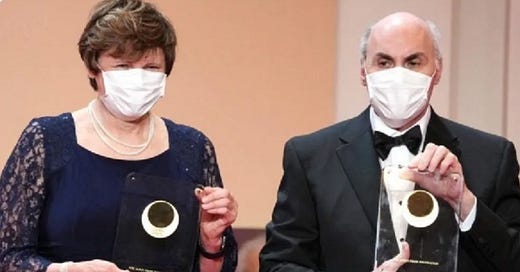


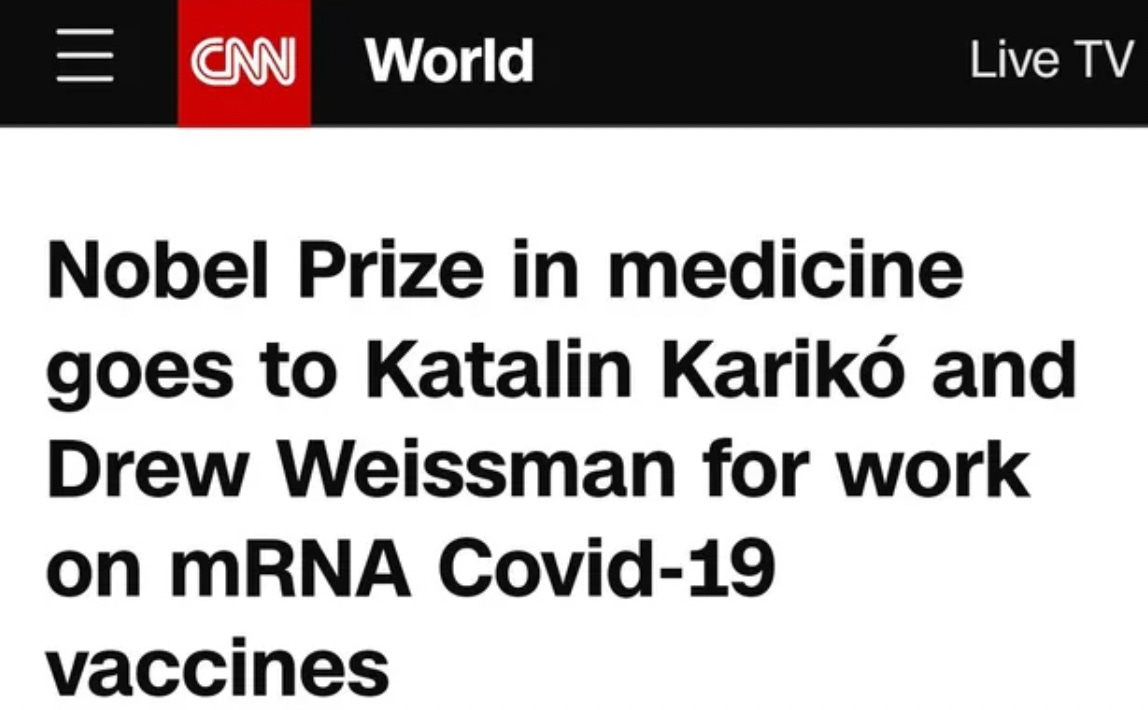






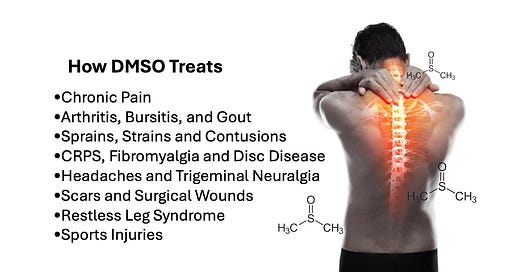

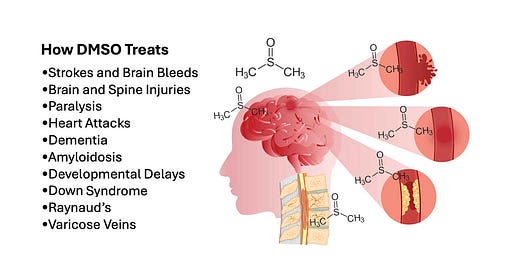

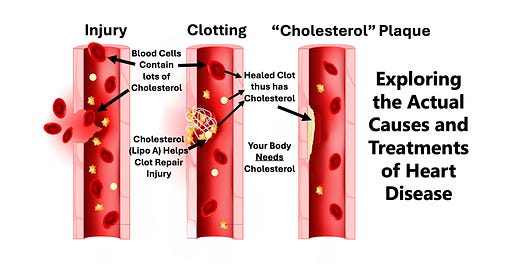

Our Dear AMD - December 2019 seems so long ago now. And as cynical as I believed myself to be back then - it still shocks me to realize now, how trusting and naïve I was then. It reminds me of Dr. Pierre Kory, who I watched from December 2022 on. He commented on how naïve he was before COVID, and how every new bit of (medical) corruption he learned of, made him realize how much deeper and deeper and darker and darker, the well is, and how far back the medical corruption goes, in terms of years.
My two bits of solace, COVID has opened the eyes of so many of us who were sleeping through life with rose colored glasses on. I’m honored to know of you, know of your writings, to witness this amazing community that you’ve engendered. You, sir/ma’am (as the case may be) are continuing to bring ‘Good’ into this world. You are a blessing for humanity, and I thank you for making that choice.
Elizabeth
The medical mafia manipulates, all aspects of medicine for the profit motive, and relegates anyone who challenges their goals to the manure pile of history! The concepts of the Nobel prize was supposed to be an incentive to improve humanity’s time on earth, but it has been corrupted for those who want to control our time on earth!